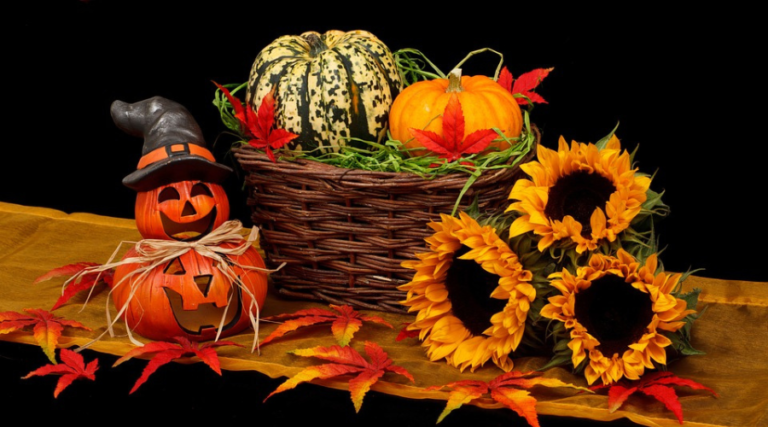Psychology of Black Friday Shopping and Strategies to Resist Temptation
This blog/post may contain links to third party merchants. Smarty earns commissions on purchases you make using these links.
Traditionally observed on the day after Thanksgiving, Black Friday has evolved into the ultimate shopping festival in recent years. Countless consumers flock to both online and brick-and-mortar stores, enticed by irresistible deals. But what fuels this shopping frenzy? Let’s delve into the fascinating world of consumer psychology to unravel the mystery behind Black Friday’s magnetic allure.
The Psychology of Black Friday Shopping:
1. Black Friday: A Tradition and a Ritual
For many, Black Friday is more than just a day-long shopping spree—it’s a tradition ingrained in American culture. According to consumer psychologist Kit Yarrow, Black Friday is a family tradition that spans generations. Families gather together, anticipating incredible deals and savoring the joy of a shared experience.
2. The Power of Limited-Time Offers
Marketers cleverly tap into our brain’s hardwired fear of missing out (FOMO) by advertising Black Friday deals as limited-time offers. This creates a sense of urgency and scarcity, compelling us to act swiftly to avoid missing out on a potentially fantastic deal. This psychological trigger, known as “loss aversion,” is potent and can drive consumers to make purchases they might not otherwise consider.
3. The Endowment Effect
The endowment effect, a phenomenon where people value something more once they own it, can lead shoppers to hold on to their Black Friday purchases, even if they later realize they didn’t truly need or want the item. This cognitive bias can lead to unnecessary purchases and subsequent buyer’s remorse.
4. The Thrill of The Hunt
There’s an undeniable thrill in scoring a fantastic deal, and Black Friday offers consumers the perfect hunting ground. The adrenaline rush accompanying snagging a coveted item at a significantly reduced price can be a potent motivator. Akin to winning a game or a competition, scoring a Black Friday deal can temporarily boost self-esteem and a sense of achievement.
5. The Bandwagon Effect
The bandwagon effect, a psychological phenomenon where people do something primarily because others are doing it, plays a significant role in Black Friday shopping. The media buzz and social conversations surrounding Black Friday deals create an impression that everyone is participating in the event, compelling more people to join in and avoid feeling left out.
6. The Lure of Competitive Shopping
For some shoppers, the thrill of Black Friday doesn’t come solely from the deals themselves but rather from the competitive nature of the event. These competitive shoppers relish the challenge of outsmarting businesses and other consumers to snag the best deals. The satisfaction derived from this “win” can be a significant driving factor for their participation in Black Friday.
7. The Role of Retail Therapy
Shopping can provide a temporary mood lift for some people, a phenomenon known as retail therapy. However, the positive effects of retail therapy are usually short-lived and can lead to feelings of regret once the initial excitement fades. This temporary mood boost can be a powerful motivator for engaging in Black Friday shopping.
8. The Impact of Restraint Bias
Restraint bias, a cognitive phenomenon wherein individuals overestimate their ability to control impulses, frequently manifests on Black Friday. The multitude of enticing deals can entice shoppers to exceed their initial spending plans, driven by the erroneous belief in possessing greater self-control than is actually the case.
9. Generosity or Thoughtlessness?
The desire to be a generous gift-giver can also motivate Black Friday shopping. The abundance of deals can lead shoppers to purchase items to give them as gifts later. However, recipients often perceive these gifts as less meaningful, as they weren’t explicitly chosen for them.
Tips to Navigating Black Friday Dilemma
With an understanding of the psychology of Black Friday shopping, here are a few tips to navigate the event effectively:
- Set a budget: Decide on a spending limit before shopping to avoid overspending.
- Make a List: List the items you truly need or want. Stick to this list to avoid impulse purchases.
- Shop with a Friend: A shopping companion can help keep your spending in check and offer a second opinion on potential purchases.
- Beware of the hype: Remember that not all deals are as good as they seem. Do your research and compare prices.
- Leverage smart shopping tools: Use tools like the Smarty browser extension to score big deals, find coupons, and receive cashback throughout the year.
Related Article: Top Black Friday Shopping Tips 2023 To Keep Your Spending in Check
Understanding the psychology of Black Friday shopping can help consumers navigate the event more effectively, making informed decisions that align with their needs and budget. Whether you partake in the deals, the tradition, or the thrill of the hunt, being aware of the psychological triggers can help you make the most of the event without falling prey to common shopping pitfalls.







